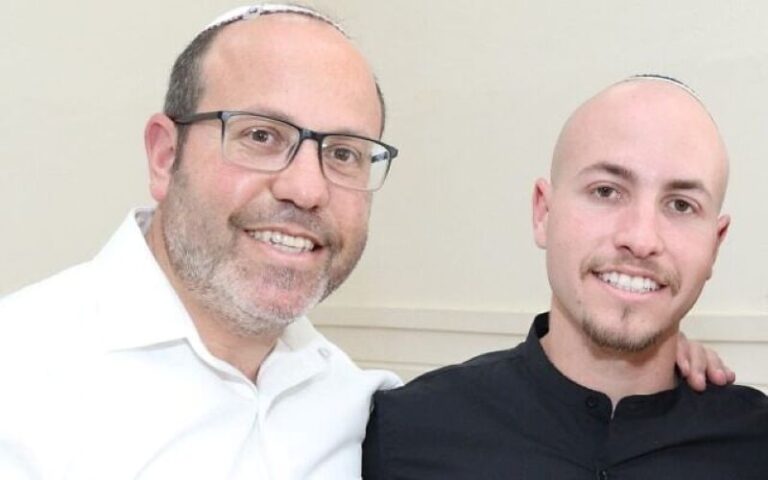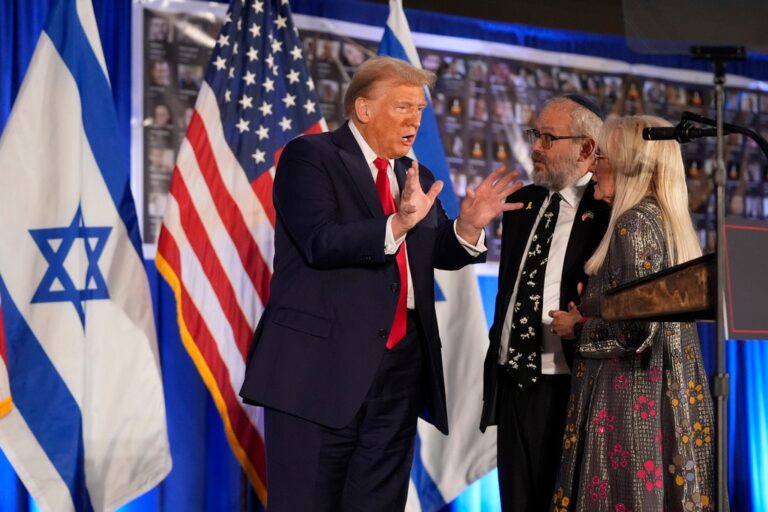Rabbi Yair Hoffman for the Five Towns Jewish Times
The U.S. – Israel security partnership is central to both America’s national security as well as Israel’s. There is one organization that constantly seeks to keep that relationship strong and ever-improve it. This organization, JINSA, deserves our recognition.
As you are reading this interview, there are 10 recently retired US Army Generals and US Navy Admirals that are visiting Israel as part of Jinsa’s 2015 Generals and Admirals Program. This program is a continuing-education program designed to educate recently retired influential U.S. military officers on the importance of a robust U.S.–Israel partnership. Participants are able to share the lessons they learned with policymakers, elected officials, community leaders, and when they return from Tel-Aviv – the media.
JINSA is an organization that is well known within the Washington Beltway, yet not so well known throughout the United States. It is a non-profit started in 1976 to advocate on behalf of a strong U.S. military, a robust national security policy, and a strong U.S. security relationship with Israel and other like-minded allies.
JINSA also helps engage the American defense community about the role Israel can and does play in securing Western, democratic interests in the Middle East and Mediterranean regions. Its programs are designed to create awareness in the general public, as well as in the Jewish community of the importance of a strong American defense capability.
Dr. Michael Makovsky is the CEO of JINSA and spoke with Rabbi Yair Hoffman in an exclusive interview with the Five Towns Jewish Times.
Dr. Makovsky has headed JINSA in 2013 as CEO. A U.S. national security expert, he has worked extensively on Iran’s nuclear program, the Middle East, and the intersection of international energy markets and politics with U.S. national security.
From 2006-2013, Dr. Makovsky was the Foreign Policy Director for the Bipartisan Policy Center where he managed projects on a new U.S. policy toward Iran’s nuclear development.
Dr. Makovsky served as special assistant in the Office of the Secretary of Defense, and was Director of Essential Services in the Washington office of the Coalition Provisional Authority, the postwar Allied entity that governed Iraq, advising senior Defense, National Security Council and Energy officials on Iraqi and Middle Eastern energy policy.
YH: How do the Generals and Admiral now in Israel take to the JINSA program?
MM: JINSA has had this program for 35 years and it’s been very popular with the generals and admirals. Some of have been to Israel before and some haven’t, but they usually acknowledge that they’ve never seen it with such depth and access as they do with JINSA.
They usually meet with the defense minister, senior intelligence officials, IDF chief of staff, regional commanders, sometimes the prime minister. It’s a very intensive trip as part of a larger continuing education program.
YH: The Generals and Admirals program – what would you say is the most eye-opening thing that the participants see?
MM: It depends on the year. Last year, probably the two most memorable sites were a terror tunnel near a kibbutz on the Gaza border two months before war with Gaza broke out. One participant, Jim Conway, former Commandant of the Marines and a general in Fallujah, wrote an op-ed in the Wall St Journal in July last year, during the war, claiming he hadn’t seen tunnels like that and used for killing and abducting in Iraq, and that there was a ‘moral chasm’ between Israel and Hamas.
They also were taken on a navy boat to an offshore gas terminal near Gaza. Going to all of Israel’s borders and getting candid briefings are eye-opening.
YH: Are there any changes that they suggest for Israel when they go?
MM: An offshoot of our program was a report released in March by five retired American generals with experience in Iraq and Afghanistan assessing the Gaza war and its lessons for the US. In the report, “2014 Gaza War Assessment: The New Face of Conflict,” did offer implicitly some suggestions for the IDF and Israel in conducting war but it was more directed at that what the US should learn from it.
YH: Are there any changes that they would try to bring back to the United States?
MM: Israel has less time to react to things than almost any other country – There is a concept called seeing is believing. When they see this reality for themselves – do they come away with a deeper or stronger feeling for the need for Israel to protect itself?
I think they generally understand Israel’s strategic and tactical military challenges far better.
YH: What are your thoughts about the 30,000 pound bunker busters – is there a possibility that some of these can be given to israel as the Grace Meng article suggested?
MM: That op-ed cited an op-ed I co-authored last year in the Wall St Journal with Gen. Dave Deptula, who is a senior advisor to JINSA and a member of our Iran Task Force and was a participant in our Generals and Admirals Program.
I think the US should offer it to Israel to augment its capacity to strike Iran and send a strong signal of US support for Israel and that we won’t permit a nuclear Iran. A number in Congress have expressed support for our idea but I can’t handicap the chances for it happening.
YH: Is it challenging to remain non-partisan?
MM: Yes, but we have Democrats and Republicans involved. Our focus is on a strong US natural security and defense posture and strong US-Israel security ties are an important element to that.
YH: Where do you see JINSA going in the near future?
MM: We’ll continue to leverage our excellent relationships with the US and Israeli and Jordanian military ties to do more substantive work on US national security and contribute to the debate and policy.
YH: Where does JINSA get most of its funding from?
Foundations, individuals and companies.
YH: In an op-ed you co-wrote for the LA Times – you delineated six principles that we must adhere to when dealing with Iran – it seems that some of these criterion has not been adhered to of late. What can be done to ensure that these standards be followed?
MM: We must oppose a terrible deal with Iran, which is what seems to be emerging, step back and increase sanctions and make them truly crippling and boost the credibility of our military option and that of Israel’s. That will increase the chances of preventing a nuclear Iran through diplomacy or otherwise.
YH: What was Jinsa’s feeling on the Corker Menendez bill?
MM: I support it as it gives Congress an opportunity to express its opinion about a deal but it won’t solve the problem and a two-thirds majority of Senators should be required to approve it instead of disapprove it.
YH: Any plans to help grow Jinsa?
MM: Continue leveraging our assets and making substantive contributions to the policy debate and public opinion. Since I became CEO two years ago, we’ve grown the organization, raised its profile and its impact, as well as its budget and we need to continue to do that.
YH: Thanks so much for your time and good luck with the rest of the program!
MM: Thank you!
The author can be reached at [email protected]










